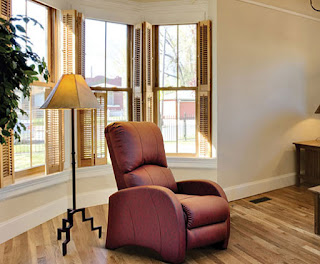Recliners for People with Special Needs: Features and Considerations
Recliners designed for people with special needs offer specific features and considerations to ensure optimal comfort, accessibility, and support. Here are some important features and considerations to keep in mind when choosing recliners for individuals with special needs:
Accessibility: Look for recliners that have easy-to-use controls and mechanisms. This may include remote controls, push-button controls, or lever-operated systems that individuals with limited mobility or dexterity can operate easily.
Mobility and Transfer Assistance: Consider recliners that have features to assist with mobility and transfers. This can include options such as power lift mechanisms that gently lift the user to a standing position, making it easier for individuals with mobility challenges to sit down or get up from the chair.
Customizable Positioning: Opt for recliners that offer a wide range of adjustable positions. This allows individuals to find the most comfortable and supportive position for their specific needs. Look for features such as multiple reclining angles, adjustable headrests, lumbar support, and leg extensions.
Support and Cushioning: Pay attention to the level of support and cushioning provided by the recliner. Individuals with special needs may require extra support for their back, neck, and limbs. Look for recliners with ergonomic designs, firm yet comfortable padding, and adequate lumbar support to ensure proper body alignment and minimize discomfort.
Pressure Relief: Individuals who spend extended periods of time seated may benefit from recliners with pressure-relieving features. Look for recliners that have memory foam or gel-infused padding, which can help distribute pressure and reduce the risk of pressure sores or discomfort.
Fabric Selection: Consider the choice of fabric for the recliner. Opt for materials that are soft, breathable, and easy to clean. Anti-microbial or hypoallergenic fabrics may be preferred for individuals with specific sensitivities or conditions.
Size and Weight Capacity: Ensure that the recliner can accommodate the size and weight of the individual using it. Check the weight capacity of the recliner to ensure it can safely support the user. Additionally, consider the dimensions of the recliner to ensure a proper fit and allow for comfortable movement.
Additional Features: Depending on specific needs, consider additional features that may enhance comfort and convenience. This could include features like built-in heat or massage functions for relaxation, USB ports for charging electronic devices, or side pockets for storing personal items.
Safety Features: Safety should be a top consideration. Look for sofa recliners that have sturdy construction, non-slip or lockable mechanisms, and adhere to safety standards. This is especially important for individuals with limited mobility or balance.
Consultation and Test-Driving: If possible, consult with healthcare professionals or occupational therapists who specialize in assisting individuals with special needs. They can provide guidance and recommendations based on specific requirements. It may also be helpful to test-drive different recliners to assess comfort and functionality before making a final decision.
By considering these features and taking individual needs into account, you can find Recliner chairs that provide the necessary support, accessibility, and comfort for individuals with special needs.


Comments
Post a Comment